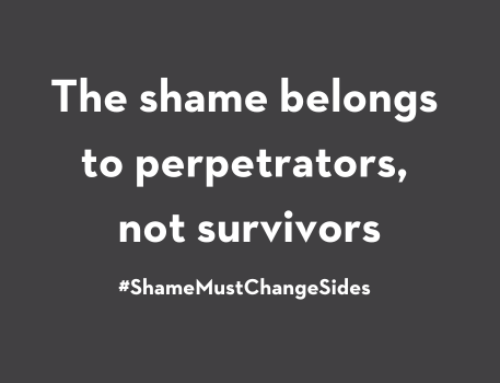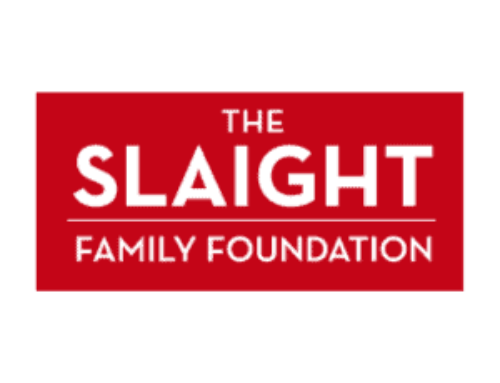
It is 3:45pm and Bre (SERC Sexuality & Reproductive Health Facilitator) and I are sitting outside a core area school waiting for the acceptable time to go in and take over the classroom. Bre tells me a familiar message I have heard when out with Klinic Teen Talk staff – we don’t want to get in the way of teachers and students as their day is winding down, so we are never early, and never late. It seems to me that this fits with some of the core things we are going to talk about with these students today: how we communicate our needs and respect those of others.
The group we are working with is made up of roughly 16 junior high students who participate in a variety of after school activities through the Peaceful Village Program, our partners in delivering this service. Peaceful Village offers programming that supports integration and literacy for newcomer families and youth. There is additional funding from the Canadian Women’s Foundation Investing in Teen Healthy Relationships granting program.
We are in the ninth week of a twelve week session SERC is running, and today our focus is on communication. All groups start with reviewing questions from the previous week left in the question box. The questions are probably my favorite part and include:
- Why do armpits smell?
- Why do guys have nipples?
- Why do some people only like other people for their looks?
Bre’s ability to navigate these questions in a manner that is respectful and engaging is impressive. She is able to talk about basic hygiene tips, anatomy, and the challenges of wanting to be liked for yourself in an easy and disarming way that engages the youth meaningfully.
I am impressed that these 16 youth have chosen to be here over 12 weeks to talk about teen health when they had other options like dance and cooking. Bre admits providing food may help enrollment but that it also gives the youth an easy reason to tell their friends why they are attending; this may be helpful in what can be a difficult to navigate, conformity heavy, junior high environment. It is also clear that SERC facilitators have a reputation for making knowledge fun, often greeted warmly by students and teachers as they walk through the school.
The hope for today is to use activities to help spark learning about the communication styles that can be helpful in forming healthy relationships. This is the basis of anti-violence and, in particular, gender violence work. We know that if we can support youth to develop healthy relationships young, there is a high probability this can become a life-long habit. We are playing the long game.
The classroom is managed chaos. Bre navigates the student’s offers to help and general clamoring for her attention with ease, thwarting dreams of a participant being the last one standing in an activity. Students are writing down an action they would like to and want to do, what they would not like to have happen, and how to ask someone else the same. They put their stickies on the front board to create different stories.
As I clean up the activity and Bre wraps up with the group, I notice that there are several stickies saying they would like to go home. I wonder in what context they have said this: is it that they are tired from a long day and want to go home to their families? Or is it the home they have come here from that is now far away? I think about the two thousand plus refugees, mostly families with children, which will be relocated to Manitoba in the coming months, and all the conversations that we are having on how we ensure that these newcomers get what they need as they settle. I think of how many of them will join Peaceful Village, and find themselves in a classroom with a SERC facilitator like Bre, looking for help, support, and knowledge as they navigate these new waters. I am glad to know that through programs like these we can hopefully help make it a little bit easier.
Learn More
- All you need is #HealthyLove! Share your commitment here.
- Sign up for our e-newsletter to have our latest stories and resources sent to your inbox.
- Follow us on Facebook and Twitter to join a national conversation on gender equality.







